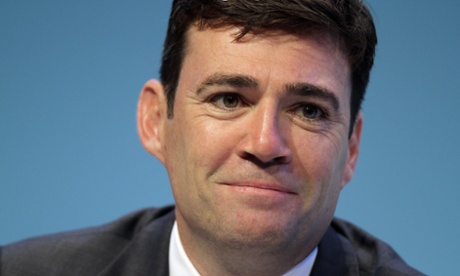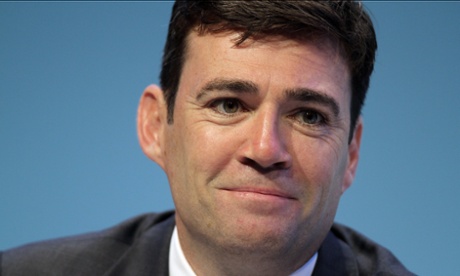Andy Burnham, the shadow health secretary, and Yvette Cooper, the shadow home secretary, have both launched their campaigns for the Labour leadership.
Burnham, one of the early frontrunners, began his push by saying the party has lost “its emotional connection with millions of people”.
Labour, he said, needs to speak to the aspirations of everyone as it did in 1997, the year that Tony Blair was elected prime minister.
His message in a video is designed to prevent him being portrayed as the candidate only of the unions.
Cooper pledged to make life better for families and said the party had not given voters enough hope going into the general election. She rejected calls to “go back to the remedies of the past” that had worked for Blair.
The announcements came as Labour announced that the result of its ballot for its next leader and deputy leader would be announced on 12 September at a special conference before the full party conference on 27 September.
The decision on the ballot came from Labour’s national executive committee (NEC) as the debate over the party’s future intensified, with a Guardian article from the Unite union general secretary Len McCluskey claiming the party had fallen into a Tory trap by insisting it would cut the deficit.
The decision on the party leadership ballot means Labour will also delay its election for the Labour candidate for London mayor until September.
Announcing his plan to stand for party leader, Burnham became the third party figure, after Liz Kendall and Chuka Umunna, to declare his candidacy. He said: “The party that I love has lost its emotional connection with millions of people.
“The way to get it back can’t possibly be to choose one group of voters over another – to speak only to people on zero hours contracts or only to shoppers at John Lewis.”
He added: “Our challenge is not to go left or right, to focus on one part of the country above another, but to rediscover the beating heart of Labour.
“And that is about the aspirations of everyone, speaking to them like we did in 1997.”
He defined aspiration, a word that is likely to be used in the contest a great deal, as about “giving every single person the dream of a better life, about helping all of our businesses, small and large, to get on and grow”.
Burnham claimed: “Labour wins when it speaks to everyone and for the whole country, for middle England but also Scotland, Wales and Northern Ireland. It needs a leader whose voice can carry into all the nations and regions of the UK.”
It is thought that Burnham has more than 60 nominations from MPs.
His announcement came a few hours before Cooper declared that she would stand in an article for the Daily Mirror.
Cooper said she wanted Labour to “move beyond the old labels of left and right” and be “credible, compassionate, creative and connected to the day-to-day realities of life”.
She wrote: “In the end, Labour didn’t convince enough people that we had the answers. They liked a lot of what we had to say, about raising the minimum wage, expanding childcare, cutting tax for low-paid workers and banning bad zero-hours contracts.
“But for many people it wasn’t enough to give them hope and confidence we could match all their ambitions for the future.
“And when there’s too little hope, optimism or confidence, the politics of anger, fear and division takes over – that’s what the Tories, the SNP and Ukip all exploited and campaigned on in this election.
“The fracturing of politics reflects the fracturing of our country and our communities. Divided between rich and poor, north and south, city and small town. And it leaves Britain a darker, narrower place.
“But that’s why Labour needs to be bigger in our appeal, bolder in our ambitions and brighter about the future.”
The NEC election timetable will in effect give unions until 12 August to try to recruit its more than 2 million political levy-payers to sign up as registered party supporters.
At present the numbers recruited is in the hundreds, meaning unions will have to go on a massive recruitment drive if they are to retain their influence.
They will be able to recruit by mail, email or phone, but the party will be entitled to check any recruit, as well as identify if they are on the electoral roll.
Nominations by MPs for leader will close on 15 June and for deputy leader on 17 June. The timetable means it is possible for the leader and deputy leader to be of the same gender.
At the same time, the staggered timetable is designed to give someone hoping to become party leader time to downgrade their ambitions and seek deputy leadership.
The schedule is regarded as a compromise between those who wanted a relatively quick process, with the new leader in place before the summer, and those who wanted to see the annual conference as a giant hustings for the leadership.
The unions need the longer timetable to recruittheir levy-payers as registered party supporters.
The number of people eligible to vote in the contest is now close to 230,000. They include the aforesaid union political levy-payers and registered party supporters who do not wish to be full party members, but would like to be registered supporters for a fee of £3.
McCluskey, with Unite probably Labour’s single largest donor, has claimed Labour lost the election not because it was too leftwing but largely because it had a muddled message on austerity and lacked a coherent narrative linking together individually popular policies.
Writing for the Guardian, McCluskey also said Ed Miliband appeared to lack the courage of his convictions and warned of a looming battle with party modernisers if their talk of wealth creation turned out to be code for abandoning the party’s duty to protect the neediest in society.
McCluskey’s views will be studied closely because they are likely to reflect the response of many in the union movement to the defeat.
McCluskey singled out the pledge to bring the deficit down by the end of the parliament and to cut the deficit every year for criticism. He said the issue “was allowed to entirely dominate Labour’s manifesto launch – surely securing not a single additional vote”.
He said Labour fell for the Tories’ austerity trap long before the election: “Ignoring the views of many economists, it accepted a need to balance the budget and eliminate the deficit which left them playing on Tory ground.
“Once this was conceded, Labour was on a hiding to nothing – no one will ever believe that they would be more reliable cutters than the Tories.
“So Labour was left trying to protect the victims of the Tory cuts agenda while accepting its underlying premises, also depriving itself of a coherent narrative linking together popular individual policies.”
He added: “Labour had no central theme, defining what it stood for. Something that could – as in 1945, 1966 and 1997 – unite working-class and middle-class voters around a vision for society.”
He said Miliband “was unable to get many of his own shadow cabinet on-message”.
McCluskey also complained that the party did not embrace popular policies such as renationalisation of the railways.











